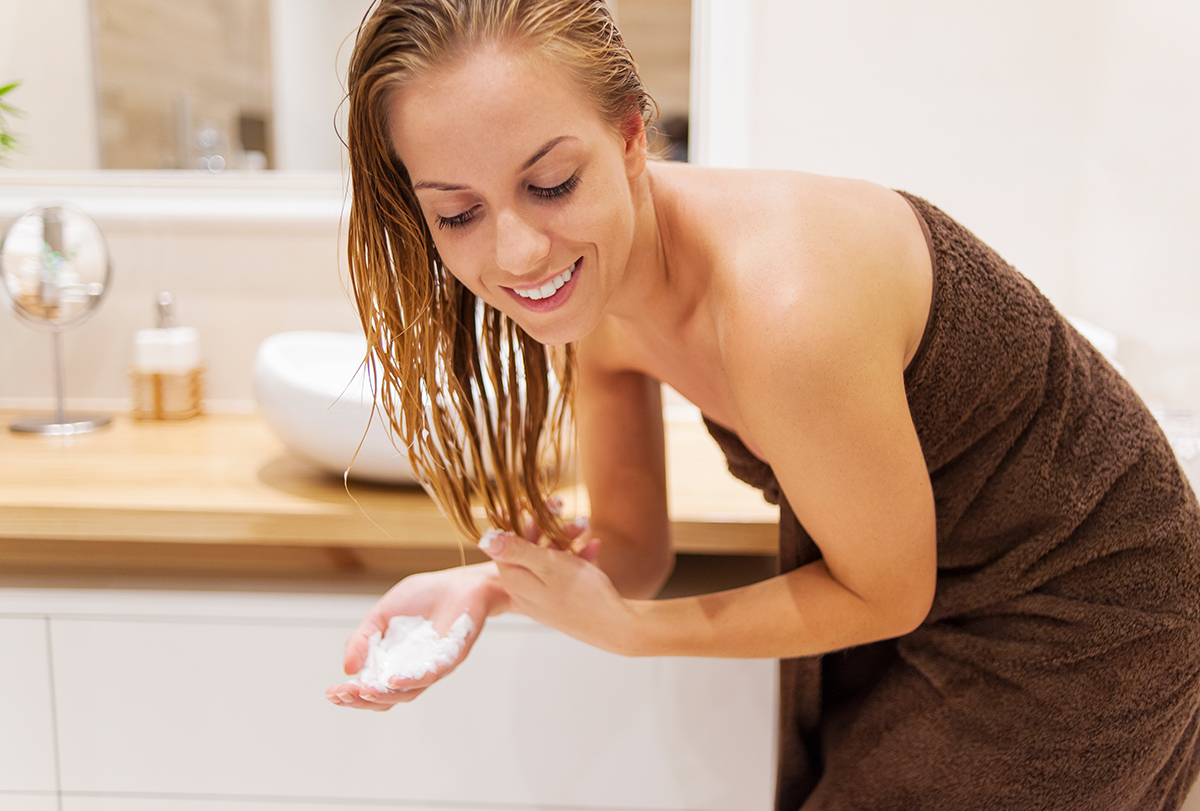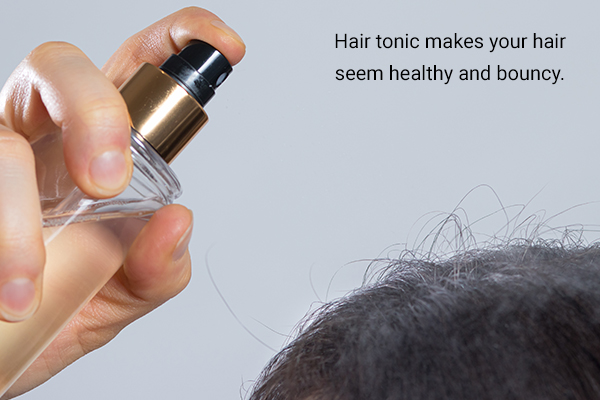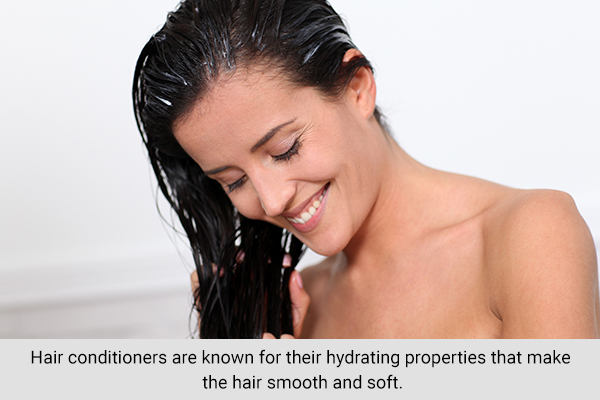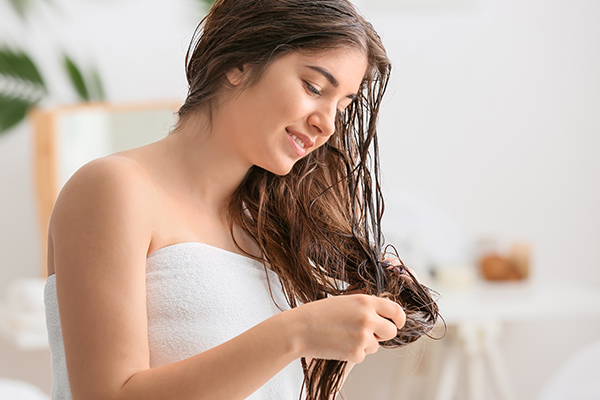In this article:
Hair conditioners have become a common product that many people use and love as a part of their hair care regimen. It can be easily bought from a grocery shop or drugstore.

What’s new in the hair care industry is hair tonics. It may be something that you haven’t heard of or used before. So, it’s only natural to have queries about its indications and use and whether you need both tonic and conditioner for your hair or if your conditioner is already enough.
To know more about these products and to find the answer to all of your questions, keep reading.
Difference Between Hair Tonics and Conditioners
| Hair tonics | Conditioners |
|---|---|
| They're designed for the main purpose of styling your hair. | They're designed specifically for maintaining hair health. |
| They're thinner in consistency. | They're thicker in consistency. |
| They repair your hair and make them shiny. | They detangle the hair, making it easier to manage. |
| They keep your scalp protected from dryness. | They strengthen your hair. |
| They will prevent dandruff and split ends. | They keep the hair safe from pollution and other dust particles. |
| They're applied to slightly damp hair after washing them. | They are mainly applied to wet hair after shampooing. Some types of conditioners are applied to dry hair. |
What Is a Hair Tonic and Its Purpose?

A hair tonic is mainly developed for styling the hair. It makes your hair seem healthy and bouncy. Hair tonics are mainly derived from plants and formulated with an oil base.
Plants contain secondary metabolites. These compounds have beneficial and therapeutic properties and are used to develop drugs and essential oils.
In short, hair tonics are mainly herbal products. They are useful for your hair health because they support hair growth. (1) They also repair your hair and give them a shiny appearance.
Moreover, hair tonics improve the texture of your hair, and some types may even resolve hair problems such as dandruff, dry hair, or excessive greasiness. They also provide moisturization to the scalp and hair, thus preventing dryness.
The best part about hair tonics is they are lightweight and, if applied regularly, they will get rid of the buildup from chemically rich hair care products or treatments. (2)
What Is a Hair Conditioner and Its Purpose?
Conditioners are viscous mixtures with a thick consistency and are used after shampooing the hair. They moisturize your hair and restore it to its healthy state.
Regularly conditioning your hair prevents roughness or harshness, making it easy to detangle and manage your hair.
Moreover, conditioning your hair before brushing avoids hair breakage. Some conditioners may help in maintaining and balancing hair pH. (3)
Benefits of Hair Tonics
The benefits of using hair tonics include: (4)(5)
- They make it easy to style your hair and maintain it throughout the day.
- They moisturize your hair and scalp to avoid dryness.
- They help prevent hair issues such as dandruff and other problems.
- Massaging the scalp with a hair tonic increases the blood flow to the hair follicles, promoting hair growth.
- They add gloss and shine to your hair.
Benefits of Hair Conditioners

The benefits of using hair conditioners include: (6)
- Their hydrating properties make the hair smooth and soft.
- They tighten the cuticles, leading to increased hair strength.
- They protect your hair from pollution, dust, and other harmful elements.
- They make your hair more voluminous.
- They make detangling the hair easy, thus preventing hair breakage during brushing or combing.
Disadvantages of Hair Tonics
Using too much hair tonic can have drawbacks. Some of them are: (7)
- Some hair tonics shouldn’t be used daily because of their strong ingredients. So, read directions before use.
- Hair tonics can contain ingredients that cause allergies. Therefore, it is important to know what you’re buying.
- Medicinal hair tonics should only be used after seeking professional advice.
Disadvantages of Hair Conditioners
Using too much hair conditioner can have drawbacks. Some of them are: (8)
- Using conditioners with harsh ingredients can be bad for the hair, especially thin hair.
- Excessive use of conditioners can make your hair greasy and prone to breakage.
- Conditioners can contain chemicals that can irritate the skin and cause allergic reactions.
How to Apply Hair Tonics?

When you’re done shampooing your hair, you are prepared to use the hair tonic. Hair tonics function best when your scalp is clean.
After showering, dry your hair with a cloth. Take a small amount of hair tonic and rub it between your palms to distribute it evenly on both hands. Apply it to your slightly damp hair, making sure to cover all your hair strands.
For even distribution, you can comb through your damp hair. You can also reapply the tonic right before you style your hair to reactivate its effects.
Can I Use a Hair Tonic and Conditioner Together?
Yes, you can use a hair tonic and conditioner together one after the other. This means that after you are done shampooing and conditioning your hair, tonic is next.
There may be times when it might not be possible for you to wash and condition your hair; on those days, you can use a hair tonic alone if you have dry hair.
Most-Asked Questions About Hair Tonics and Conditioners
Can I apply a hair tonic every day?
Hair tonics have a lot of benefits for your hair as they strengthen the roots, control dandruff, and prevent hair damage. You can apply a hair tonic daily to gently massage your scalp, given you use only the recommended amount.
Can I use a hair conditioner every day?
Conditioners are an essential part of hair care. The frequency of conditioning your hair will depend on your hair type.
For instance, if your hair is prone to dryness, decrease the frequency of shampooing, which means the frequency of conditioning will decrease too. However, some conditioners can be used more often than shampoos.
Generally, twice a week is a good frequency for conditioning the hair. (3)
What are leave-in conditioners?
Leave-in conditioners are designed almost like hair oils because they detangle and smoothen the hair. They provide hydration to your hair and protect them from damage. They are lighter and less viscous than other conditioners.
Moreover, leave-in conditioners are beneficial for all types of hair, from curly to straight.
Final Word
Hair tonics and conditioners both come with their own sets of benefits and uses. Their use will depend on your hair type and hair goals It is important to check the ingredient list of your hair care products to ensure they don’t contain harmful chemicals or allergens.
- Was this article helpful?
- YES, THANKS!NOT REALLY


